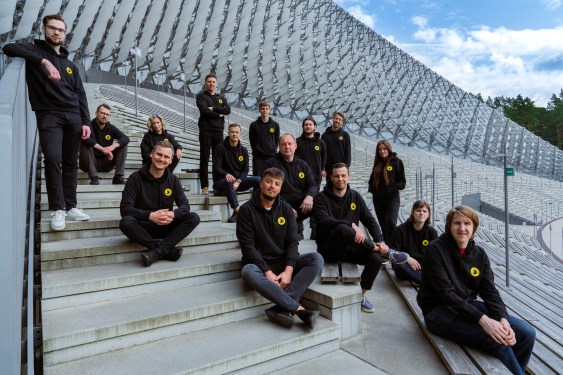Paying with a handwave once sounded like science fiction, but contactless palm recognition service Amazon One has already been used more than 8 million times, according to the company. That’s Amazon, though, which explains why it has been deployed in Amazon stores and more than 500 Whole Foods Market stores in the U.S., but only 150 third-party locations.
Meanwhile, fintech startups like Latvia’s Handwave are stepping onto the field, aiming to provide third-party retailers with a similar but independent solution for faster checkout while leveraging the giant’s role in popularizing biometric payments in the West. China has already begun adopting biometric palm payments, with Tencent working to bring its Weixin Palm Pay service into mainstream use.
Like Apple’s Face ID, palm scanning uses more than static images—it analyzes palm vein patterns and verifies that the user is physically present when they hover their hand over the scanner. This method works for secure contactless payments and also applies to broader identity verification scenarios, with players like Keyo supporting secure building access and other applications.
In contrast, Handwave is focusing specifically on retail. Since it doesn’t own stores like Amazon, it had to seek partners, which required having a product. Three years in, and now with its own hardware and software, the Latvian startup is preparing for market pilots that will deploy its palm scanning devices at retail stores.
Merchants who deploy the startup’s tech would pay a transaction fee that Handwave claims will be on par with or lower than standard payments. According to Handwave, faster and cheaper checkouts could reduce costs. But unlike some cost-cutting measures, this solution aims to make things easier for customers—with the promise of no cards, no apps, no fingerprint scanners, and no facial scans—even for age verification and loyalty programs.
Handwave’s cofounders, CEO Janis Stirna and Sandis Osmanis-Usmanis, previously worked for one of the world’s largest global payment providers, Worldline. Despite this connection, the team aims to build a wide ecosystem. Their plan is to collaborate with any financial institution or acquiring bank.
The startup has only partnered with a handful of financial institutions so far, but very big ones, especially in Europe. This summer, the startup signed an agreement with Visa that could speed up the deployment of Handwave’s solution in any country.
While Handwave has its eyes on the U.S. market as well, its chief revenue officer believes that starting in the European Union—the strictest market in the world—and demonstrating compliance there before expanding could be an advantage. Being an independent European player could also help the startup keep an edge if or when Amazon decides to more aggressively offer Amazon One to third parties, or if JP Morgan rolls out its own palm payment experiment further.
The startup can rely on other arguments, including pricing. After financial partners told Handwave its devices need to compete on price, the startup developed its own hardware and algorithms, making them cheaper than others. Being based in Riga also enabled Handwave to operate with limited capital. The startup’s R&D process was funded through bootstrapping, a $780,000 angel investment round, and $267,000 in non-equity funding, including an EU-funded cybersecurity grant and support from Latvia’s LIAA Business Incubator and EU-backed accelerator Ready2Scale.
As it gears up for its first pilots and obtaining regulatory certifications, Handwave has now secured a $4.2 million seed funding round led by Vilnius-based VC firm Practica Capital, with participation from FirstPick and Outlast Fund, also from Lithuania, and Inovo.vc, a Polish VC firm that also operates in the Baltics.
The Baltic states have established themselves as a fintech hub, but also have scientific talent that’s easier for a startup like Handwave to attract and afford than in Silicon Valley—including AI engineers. In the Baltics, there are not many companies where you can get that extreme level of technical challenge to resolve.
For the chief revenue officer, who previously held a senior marketing role at Baltic bank Luminor Bank, the vision was compelling enough to leave a well-paid corporate job. He truly believes they are building the next big global payment platform.
Handwave seems ready to put its best hand forward—but only time will tell if the market will grab on and if biometric palm payments will truly take hold.

